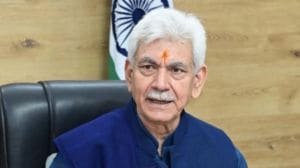Elephant trumpets at Cannes
Polite and soft-spoken film-maker Gus Van Sant spoke to a reporter late Friday afternoon about Elephant, his entry at the Cannes Film Festiv...

Polite and soft-spoken film-maker Gus Van Sant spoke to a reporter late Friday afternoon about Elephant, his entry at the Cannes Film Festival. He didn’t voice his hope of winning the big one — the Golden Palm. The chances of winning seemed remote.
On Sunday night, against most people’s reckoning, he won both the Golden Palm for best picture and the prize for best director. Elephant, writer-director Van Sant’s fictionalised interpretation of the tragic events at Columbine, follows two disaffected high school students as they plan a wholesale slaughter of teachers and other students. But rather than being sensational, Van Sant’s movie is an understated drama that takes no sides, only sympathy for everyone.
For Van Sant, it’s the start of a brand-new ride. ‘‘Thank you, jury,’’ said Van Sant, after jury president Patrice Chereau and French actress Isabelle Huppert announced his win. Van Sant’s double triumph happened in a festival that had yielded the most lacklustre selection in more than a decade. Other than Dogville, Elephant and The Barbarian Invasions, the only movies that seemed like remote contenders were Clint Eastwood’s crime drama Mystic River, Francois Ozon’s Swimming Pool, Nuri Bilge Ceylan’s Distant and Samira Makhmalbaf’s, At Five in the Afternoon.
Arcand, Ceylan and Makhmalbaf joined Van Sant as double winners. Arcand won the screen-writing award for The Barbarian Invasions and lead actress Marie-Josee Croze won for best actress. Distant, a film about a Turkish professional whose annoying distant cousin comes to live with him, won the runner-up Grand Prize. The two principal actors in that film — Muzaffer Ozdemir and Mehmet Emin Toprak — shared the actor’s prize.
Makhmalbaf, the 23-year-old Iranian director, won the Jury Prize as well as the Ecumenical Jury Award. It was a good night for Iran: Jafar Panahi, whose The White Balloon won him the Camera d’Or for first-time filmmaker in 1995, took the top prize for Sanget Or in the UnCertain Regard sidebar competition. (LAT-WP)






- 01
- 02
- 03
- 04
- 05

























